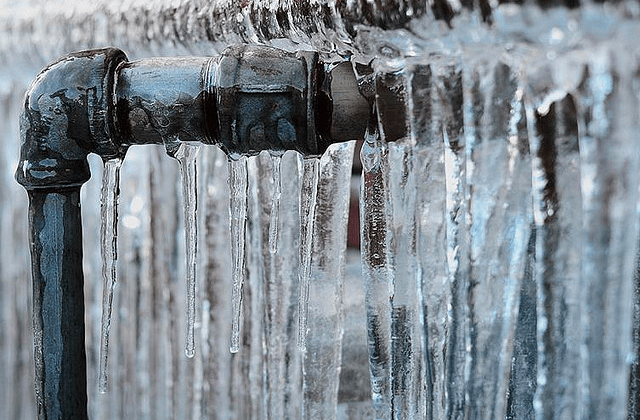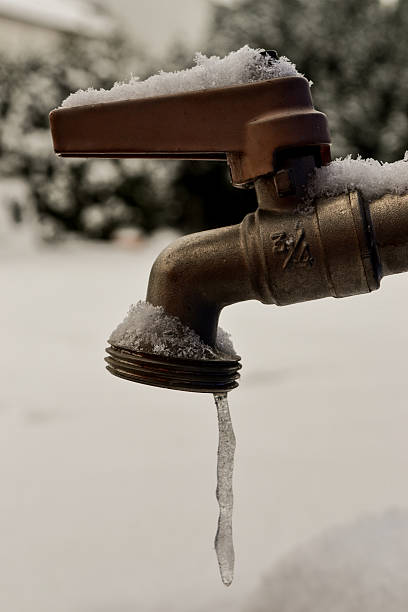The article author is making several good points on the subject of How to prepare your home plumbing for winter weather as a whole in the article on the next paragraphs.

Winter can damage your pipes, especially by freezing pipes. Below's exactly how to avoid it from occurring and what to do if it does.
Introduction
As temperature levels drop, the danger of icy pipes rises, potentially resulting in pricey repair work and water damages. Understanding exactly how to stop frozen pipes is critical for property owners in cool environments.
Prevention Tips
Protecting vulnerable pipes
Cover pipelines in insulation sleeves or make use of heat tape to safeguard them from freezing temperatures. Concentrate on pipelines in unheated or external locations of the home.
Home heating techniques
Keep interior areas appropriately warmed, especially locations with pipes. Open up closet doors to permit cozy air to flow around pipelines under sinks.
Just how to recognize icy pipelines
Try to find reduced water flow from taps, uncommon smells or sounds from pipelines, and visible frost on exposed pipelines.
Long-Term Solutions
Structural modifications
Take into consideration rerouting pipes away from outside wall surfaces or unheated locations. Add extra insulation to attic rooms, cellars, and crawl spaces.
Upgrading insulation
Invest in top quality insulation for pipelines, attics, and wall surfaces. Appropriate insulation helps keep constant temperatures and lowers the danger of icy pipes.
Protecting Outside Pipes
Garden tubes and outdoor taps
Disconnect and drain pipes yard tubes before winter months. Install frost-proof faucets or cover exterior faucets with protected caps.
Recognizing Icy Pipelines
What creates pipes to freeze?
Pipes freeze when subjected to temperature levels listed below 32 ° F (0 ° C) for extended periods. As water inside the pipes freezes, it broadens, taxing the pipeline wall surfaces and possibly creating them to burst.
Dangers and damages
Frozen pipes can result in water disturbances, residential or commercial property damage, and expensive repairs. Burst pipelines can flooding homes and trigger considerable architectural damages.
Indications of Frozen Pipeline
Identifying icy pipelines early can prevent them from bursting.
What to Do If Your Pipelines Freeze
Immediate actions to take
If you believe frozen pipelines, keep faucets open up to ease pressure as the ice melts. Use a hairdryer or towels soaked in warm water to thaw pipelines gradually.
Final thought
Preventing icy pipes calls for positive measures and fast responses. By recognizing the causes, indications, and safety nets, house owners can protect their pipes throughout cold weather.
Helpful Tips to Prevent Frozen Pipes this Winter
UNDERSTANDING THE BASICS: WHY PIPES FREEZE AND WHY IT’S A PROBLEM
Water freezing inside pipes is common during the winter months, but understanding why pipes freeze, and the potential problems it can cause is crucial in preventing such incidents. This section will delve into the basics of why pipes freeze and the associated problems that may arise.
THE SCIENCE BEHIND FROZEN PIPES
When water reaches freezing temperatures, it undergoes a physical transformation and solidifies into ice. This expansion of water as it freezes is the primary reason pipes can burst. As the water inside the pipe freezes, it expands, creating immense pressure on the walls. If the pressure becomes too great, the pipe can crack or rupture, leading to leaks and water damage.
FACTORS THAT CONTRIBUTE TO PIPE FREEZING
Low Temperatures: Extremely cold weather, especially below freezing, increases the risk of pipes freezing. Uninsulated or Poorly Insulated Pipes: Pipes located in unheated areas, such as basements, crawl spaces, or attics, are more prone to freezing. Insufficient insulation or lack of insulation altogether exacerbates the problem. Exterior Wall Exposure: Pipes running along exterior walls are susceptible to freezing as they encounter colder temperatures outside. Lack of Heating or Temperature Regulation: Inadequate heating or inconsistent temperature control in your home can contribute to frozen pipes. PROBLEMS CAUSED BY FROZEN PIPES
- Pipe Bursting: As mentioned earlier, the expansion of water as it freezes can cause pipes to burst, resulting in significant water damage.
- Water Damage: When pipes burst, it can lead to flooding and water damage to your property, including walls, ceilings, flooring, and personal belongings.
- Structural Damage: Prolonged exposure to water from burst pipes can compromise the structural integrity of your home, leading to costly repairs.
- Mold and Mildew Growth: Excess moisture from water damage can create a favorable environment for mold and mildew growth, posing health risks to occupants.
- Disrupted Water Supply: Frozen pipes can also result in a complete or partial loss of water supply until the issue is resolved.
WHY CERTAIN PIPES ARE MORE PRONE TO FREEZING
- Location: Pipes located in unheated or poorly insulated areas, such as basements, crawl spaces, attics, or exterior walls, are at higher risk of freezing.
- Exterior Pipes: Outdoor pipes, such as those used for irrigation or exposed plumbing, are particularly vulnerable to freezing as they are directly exposed to the elements.
- Supply Lines: Pipes that carry water from the main water supply into your home, including the main water line, are critical to protect as freezing in these lines can affect your entire plumbing system.
- Underground Pipes: Pipes buried underground, such as those connected to sprinkler systems or outdoor faucets, can be susceptible to freezing if not properly insulated.
https://busybusy.com/blog/helpful-tips-to-prevent-frozen-pipes-this-winter/

We were brought to that editorial on How To Avoid Freezing Pipes from a buddy on our other blog. Do you know somebody who is looking into the niche? Why not share it. I am grateful for your time. Kindly stop by our website back soon.
Click Here To Read More